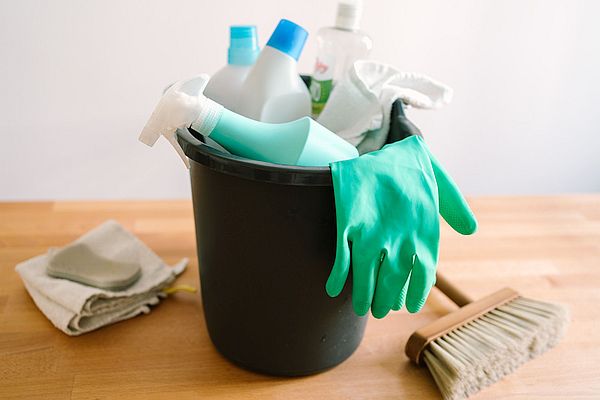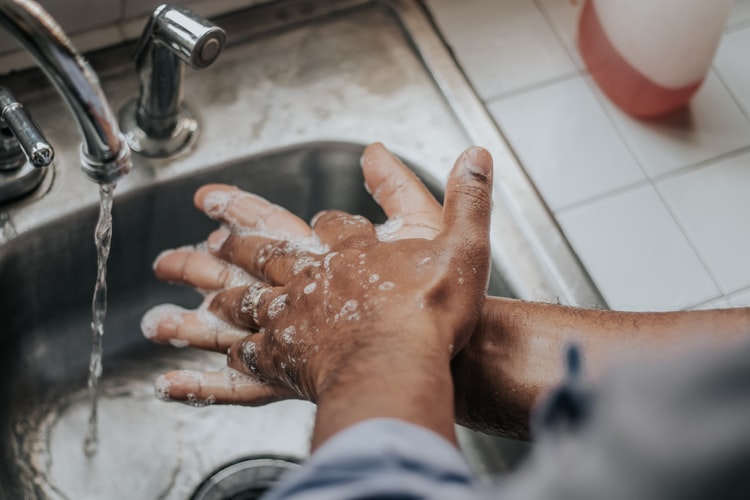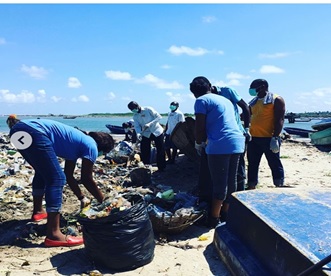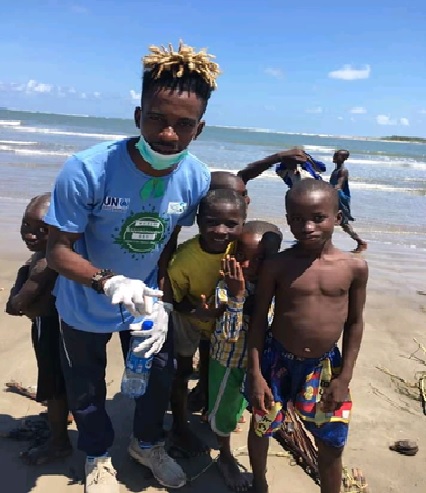The acronym WASH is best used to describe “water, sanitation and hygiene”. WASH is a key public health matter within international development and is the focus of the first two targets of Sustainable Development Goal 6 (SDG 6).
Once a community has access to safe water, adequate sanitation and hygiene education, one can say that WASH has be achieved. This can reduce illness and death, and also affect poverty reduction and socio-economic development. Improving community access to WASH services can improve health, student learning, life expectancy, gender equality, and other important issues of international development.
World Health Organization (WHO) in 2017 estimated that 2.3 billion people are without sanitation facilities and 844 million people are without access to safe and clean drinking water. It is also a known fact that lack of sanitation contributes to about 700,000 child deaths every year due to diarrhea, mainly in developing countries. Chronic diarrhea can have long-term negative effects on children, in terms of both physical and cognitive development.
The benefits of having access to an improved drinking water source can only be fully realized when there is also access to improved sanitation and adherence to good hygiene practices and that is where the concepti of WASH comes to play.
Water

Water is an inorganic, transparent, tasteless, odourless, and nearly colourless chemical substance, which is the main constituent of Earth’s hydrosphere and the fluids of all known living organisms. It is vital for all known forms of life, even though it provides no calories or organic nutrients.
A person without access to improved drinking water – for example from a protected borehole well or municipal piped supply for instance – is forced to rely on sources such as surface water, unprotected and possibly contaminated wells, or vendors selling water of unverifiable provenance and quality.
For many communities, water sources are usually far from their homes, and it typically falls to women and girls to spend much of their time and energy fetching water, a task which often exposes them to attack from men and even wild animals.
Sanitation

Sanitation is one of the most important aspects of community well-being because it protects human health, extends life spans, and is documented to provide benefits to the economy. Sanitation (e.g. toilets, latrines, mechanized wastewater treatment) is currently deployed to contain and/or treat human excreta (and in some cases grey water) to protect human health and the environment including water bodies that are sources for drinking water.
One important goal of sanitation is to safely reduce human exposure to pathogens. Pathogens are excreted by infected individuals and if not properly contained or treated, may present a risk to humans who come in contact with them. These individuals can also be exposed to pathogens through drinking water or eating food contaminated with pathogens found in human excreta.
However, without improved sanitation system – a facility that safely separates human waste from human contact – people have no choice but to use inadequate communal latrines or to practise open defecation. This affects mostly women and girls as they get exposed to abuse and sexual assault because they can’t find a place to go to toilet outside and so they have to wait until the cover of darkness.
Hygiene

Hygiene is simply the ability of an individual to participate in “conditions and practices that helps to maintain health in order to prevent the spread of disease.” According to the World Health Organization, “Hygiene refers to conditions and practices that help to maintain health and prevent the spread of diseases.”
In many parts of the world there is little or no awareness of good personal hygiene practices and their role in reducing the spread of disease. However, it is often the case that even when people do have knowledge of good hygiene behaviour, they lack the soap, safe water and washing facilities they need to make positive changes to protect themselves and their community from several disease pathogens.
WASH and Livelihoods
Not only can access to WASH free up adults, particularly women, to do more productive activities, the establishment and maintenance of WASH services could create associated employment because the disease and time burden associated with lack of access to WASH prevents many adults from earning a living or fulfilling their potential in the professional arena.
WASH and Education
Children in low-income communities with no access to WASH are unable to attend class because they are sick with a diarrhoeal disease or, particularly in the case of girls in rural areas, because they have to spend large parts of each day fetching water for their family and this to a large extent affect their focus and perfomance in school.
WASH and Health
Adequate access to WASH can help save the lives of the 800,000+ people who currently die every year from diseases directly caused by unsafe water, inadequate sanitation, and poor hygiene practices, and could also drastically reduce child malnourishment, and help alleviate physical and mental under-development.
Almost 50% of child malnutrition is associated with unsafe water, inadequate sanitation and poor hygiene. Women and girls most especially would have the facilities and knowledge to be able to manage their menstrual cycles in safety and dignity.
Our Contribution to WASH

SOFER Initiative in collaboration with Centre for Affordable Water and Sanitation Technology (CAWST) carried out a WASH campaign at Mkpanak, Ibeno, Akwa Ibom State. We discovered that this community did not have access to safe and affordable drinking water, we also discovered that the people in this community practice open defecation which is extremely hazardous to human health as exposed faecal matter will be transferred back into people’s food and water resources, helping to spread serious diseases such as cholera, diarrhea, etc.
Therefore, the WASH campaign became a necessity for SOFER Initiative who funded a clean-up activity and sensitization exercise with free distribution of hygiene and sanitation materials to the community residents, while raising awareness about their economic challenges which had direct implications on their sanitation and hygiene behaviours.

After the execution of the project, we could see the effect the campaign had on Multinational Oil Corporation- Exxon Mobil operating in the area, and other stakeholders in the community who began to practice WASH and the tourism value of the coastal community improved drastically. The campaign won our national coordinator Mr. Emmanuel Sofa and volunteers an award from the United Nations Environment. You can read more about this project on our website @ https://soferinitiative.org/oldsite/project/wash-world-environment-day-2017-campaign/
Our SOFER team helps villages identify hygiene practices in need of improvement, and helps create a plan to move them forward. We have seen how improved hygiene practices can help extend the impact of clean water.
You can join us in helping to bring access to clean water, hygiene and sanitation. To donate, please visit our donate page, Click here
Current SOFER Project
One of the ongoing project of SOFER Initiative is the Fishing Net Gains (WA) which is designed in line with the Global Ghost Gear Initiative (GGGI) & Department of Fisheries Canada (DFO) goals of identifying and tackling the issues of ghost gear and other related threats to marine life in Nigeria and the West Coast of Africa by creating economic frontiers for coastal communities and harnessing collaboration with government and stakeholders on policy development and standard practice.
The project aims to;
· Raise awareness in the public on the impacts of Abandoned, Lost, or otherwise Discarded Fishing Gears (ALDFGs).
· Generate relevant primary data on ALDFGs in the West African coast.
· Formulate standard and recommended practices that will provide guide for ALDFG policies.
· Improve the livelihood of host communities through craft innovations using recovered ghost gears.
· Proffering solutions to tackling the problems of ALDFG.
· Create awareness on the issues of other marine debris especially ocean plastics.
· Develop and recommend standard practices for establishing the Fishing HubNets (F-HubNets)
· Promote community integration and participation in the FNG project through the F-HubNet program.
· Help fishers avoid hazardous zones during fishing activities by broadening their understanding of gear conflicts.
· Keep track of emerging new data
· Educate fishers on needs for data management.
· Help avoid oil and gas pipeline related gear incidents.
· Proffer sustainable recycling solutions through creative craft contest and replicating solutions, etc.
For more details about the FNG-WA project, visit our website @ soferinitiative.org

